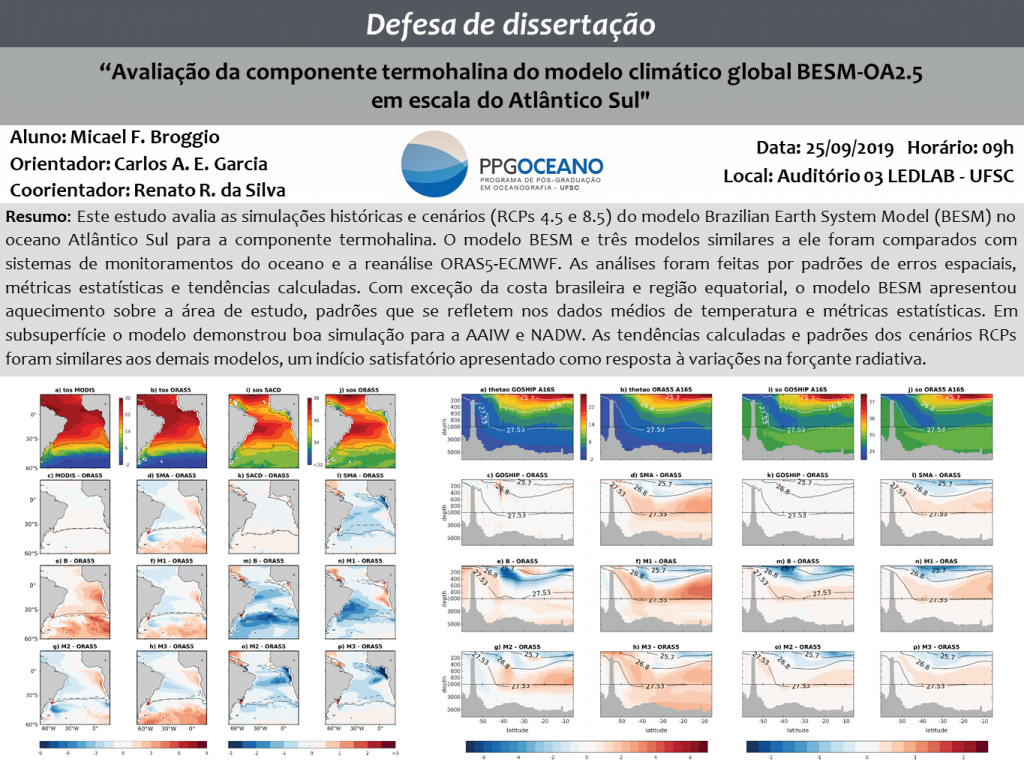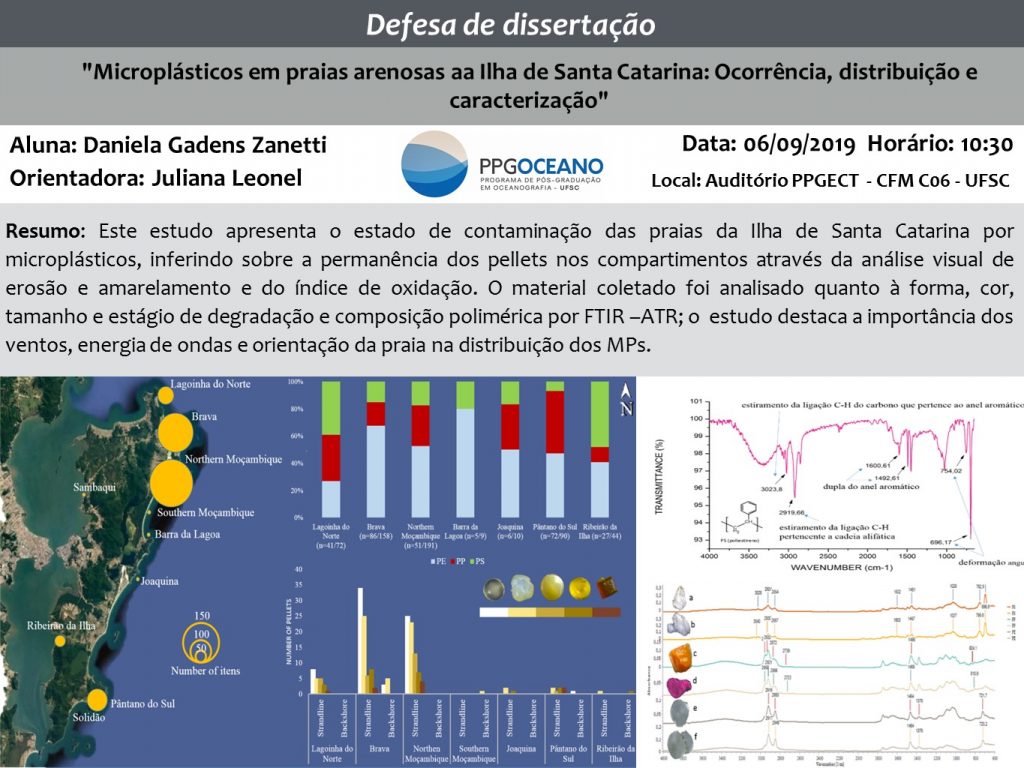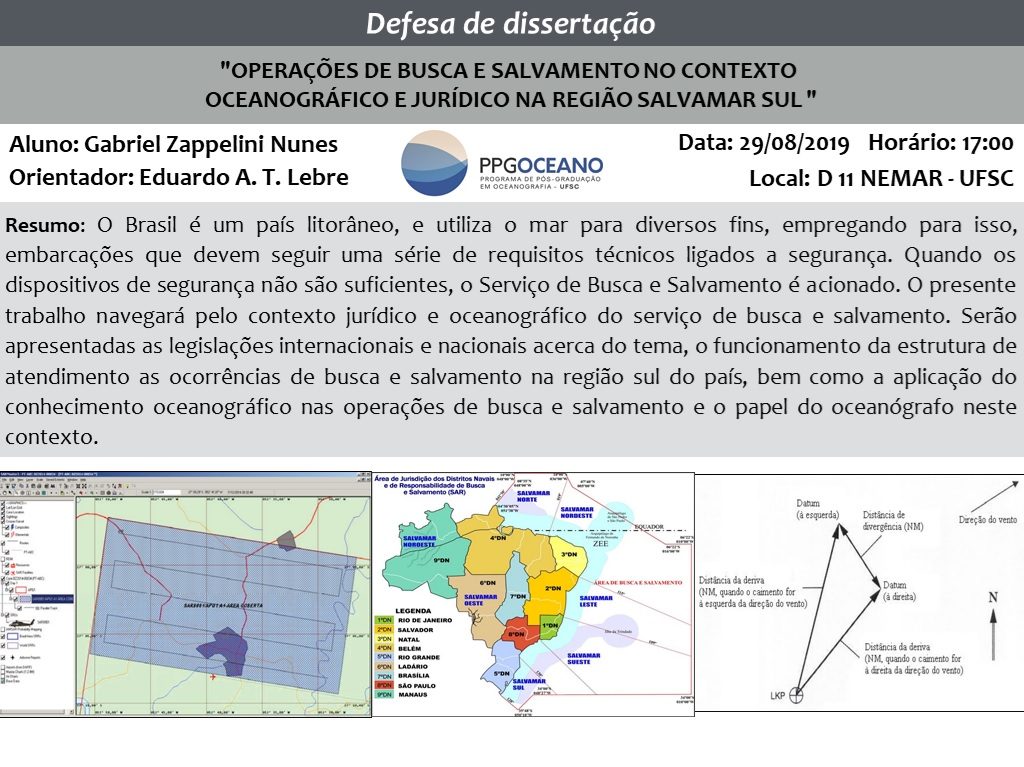Defesa de Dissertação
Defesa de Dissertação
DEFESA DE DISSERTAÇÃO
Disciplina: Changes of energy fluxes in marine animal forests of the Anthropocene: factors shaping the future seascape
Apresentada por:
Professor Sergio Rossi
Associate Researcher, DiSTeBA–Università del Salento, Italy
Local: SIPG08
Data: 19/08/2019
Horário: 9:00 hs
Abstract: Climate change is already transforming the seascapes of our oceans by changing the energy availability and the metabolic rates of the organisms. Among the ecosystem-engineering species that structure the seascape, marine animal forests (MAFs) are the most widespread. These habitats, mainly composed of suspension feeding organisms, provide structural complexity to the sea floor, analogous to terrestrial forests. Because primary and secondary productivity is responding to different impacts, in particular to the rapid ongoing environmental changes driven by climate change, this paper presents some directions about what could happen to different MAFs depending on these fast changes. Climate change could modify the resistance or resilience of MAFs, potentially making them more sensitive to impacts from anthropic activities (i.e. fisheries and coastal management), and vice versa, direct impacts may amplify climate change constraints in MAFs. Such changes will have knock-on effects on the energy budgets of active and passive suspension feeding organisms, as well as on their phenology, larval nutritional condition, and population viability. How the future seascape will be shaped by the new energy fluxes is a crucial question that has to be urgently addressed to mitigate and adapt to the diverse impacts on natural systems.
BIO. Dr. Sergio Rossi is associate professor in the Università del Salento (Italy) and visiting researcher at Universitat Autònoma de Barcelona (Spain). In this moment is also visting professor at the Universidade Federal do Cearà, where he has been in 2012, 2015, 2017, 2018 and now in 2019. He makes post graduate classes in Applied Zoology and Marine Biodiversity and Ecosystem Functioning, as well as Global Change impacts in Coastal areas. His primary focus is in global change indicators of stress in coastal benthic populations, marine invertebrate distribution, ecology and physiology, benthic-pelagic coupling processes and marine wildlife conservation and restoration. Among other things, he studies environmental and biological factors of the water column on the distribution, nutritional condition and survival of benthic organisms to increase the knowledge and tools for coastal management, the physiology and trophic ecology of benthic organisms, and underwater mapping and distribution of benthic suspension feeders with remote techniques. He has been involved in different conservation-restoration, coastal ecosystem services and environmental education projects.
Mais informações: http://poseco.ufsc.br/aluno/matricula/
Maiores informações: Paulo.horta@ufsc.br (coordenador do projeto e anfitrião do professor convidado)













